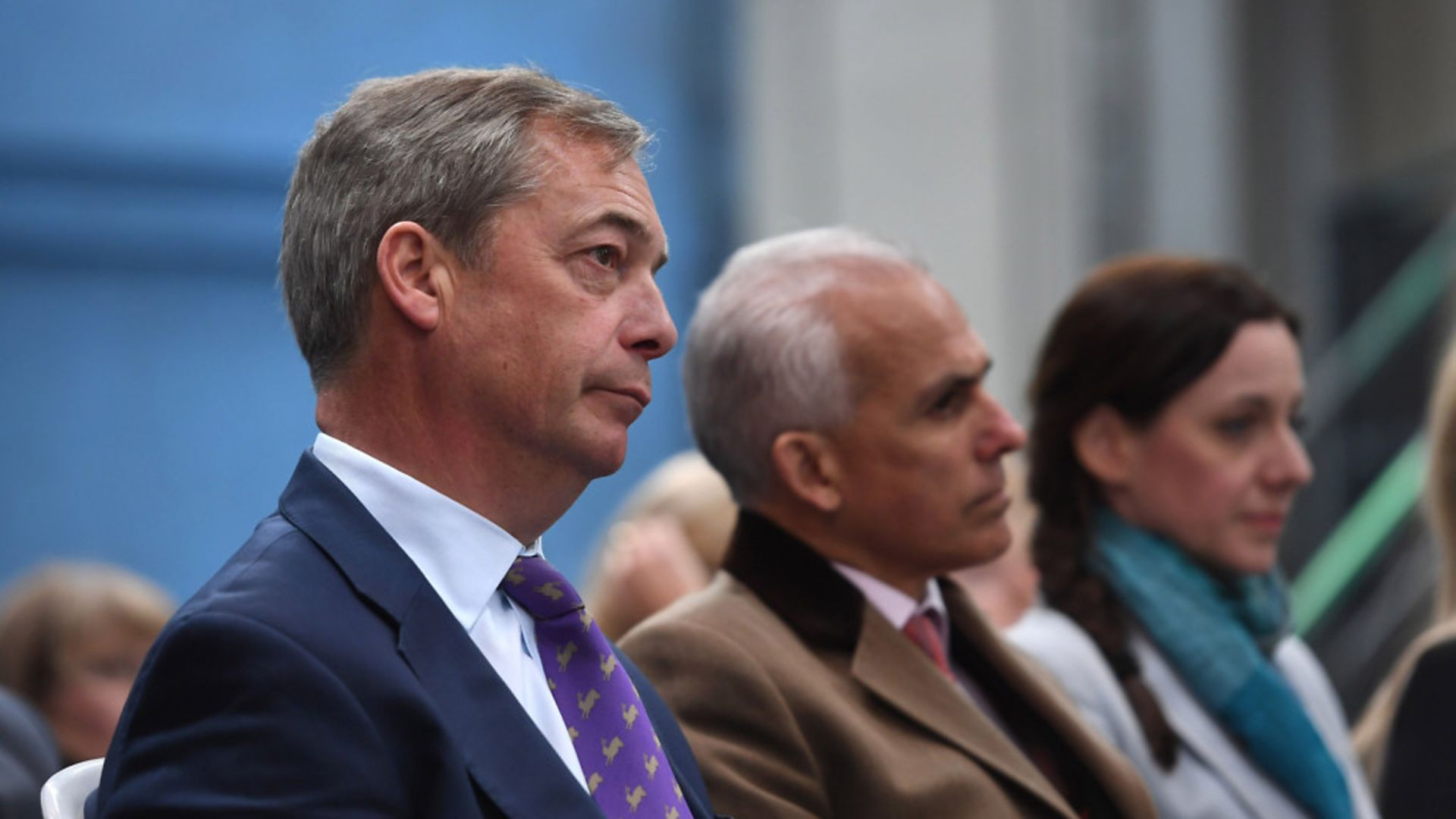
Farage cut short a telephone call with a BBC journalist investigating one of the organisation’s top donors.
In a recording of the conversation, Farage said he was aware Christopher Harborne, who donated £10 million to the Brexit Party in the lead up to the 2019 general election, had two separate identities but refused to be interviewed and hung up.
MORE: Brexit Party took almost £2 million in donations in first quarter of 2020
The BBC’s Panorama found that Harborne holds two names, which he uses to do business around the world.
In June 2018, the Panama Papers – one the largest trove of leaked private documents about the personal and business dealing of wealthy individuals – found Harborne was listed as an “intermediary” on five companies under his full name Christopher Charles Sherriff Harborne.
The documents also uncovered he was a director of Bangkok-based investment company Seaminco Securities under the name Chakrit Sakunkrit.
Nigel Farage refuses to answer questions on £10m Brexit Part
Formerly an influential Tory donor who gave the party a quarter-of-a-million pounds in donations, Harbourne has lived and worked in Thailand for the past 20 years and attained citizenship there under his new Thai name.
Although the shows producers have not accused Harborne of committing an illegal act, it has raised questions about fundraising in British politics.
Investigative reporters Richard Bilton found that the husband of one of the Tory Party’s biggest donors was secretly funded by a Russian oligarch with close ties to Russian president, Vladimir Putin.
Lubov Chernukhin has given £1.7m to the Tories, including paying to spend time with the last three prime ministers.
MORE: Boris Johnson accused of ‘prostituting himself’ to Russians for donations
Leaked files show her husband received $8m (£6.1m). The money initially came from a politician facing US sanctions due to his closeness to the Kremlin.
Her lawyers say the donations are not tainted by Kremlin influence.
Bilton’s investigation looked at how criminals were pushing through British banks and concluded that London was an international hub for money laundering due to laxed banking regulations.
Warning: Illegal string offset 'link_id' in /mnt/storage/stage/www/wp-includes/bookmark.php on line 357
Notice: Trying to get property 'link_id' of non-object in /mnt/storage/stage/www/wp-includes/bookmark.php on line 37






